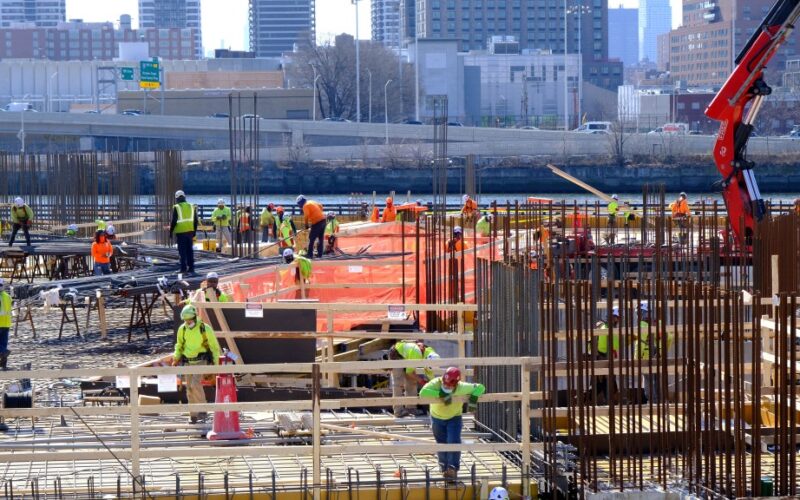As New York City tackles a pervasive affordability crisis, New York City voters were poised to pass three reforms to fast-track affordable housing development, despite pushback from the City Council over concerns it would blunt power to stop projects in their districts.
The questions, numbers 2, 3 and 4 on the ballot, were put forward by a commission convened by Mayor Adams to revise the city’s charter, as part of a bid to cut through bureaucratic red tape that is often blamed for slowing construction.
The city has not built enough homes in recent decades to keep pace with demand, nor has every neighborhood done its fair share to increase housing supply, proponents of the measure say.
“Tonight, New Yorkers sent a message: we must address the housing crisis, and we need new tools to do so,” said Richard Buery, chair of the Charter Revision Commission.
With about 95 percent of the votes in, all three measures were headed for approval by a 3:2 margin.
Ballot Proposals No. 2 and 3 would create new fast-tracked processes to build affordable housing that is either city-funded or in districts that haven’t built enough homes, and speed up approval for smaller or green projects.
Proposal No. 4, the most controversial, would create an appeals board focused on affordable housing that could overule the Council. The panel would include the mayor, Council speaker and local borough president, and require at least a 2-1 to reverse the legislative body’s decision by considering broader housing needs.
After the mayor’s race, perhaps no referendum on this year’s ballot has gotten as much attention as the housing proposals.
At issue is a controversial practice known as “member deference,” an informal veto that Council members have over local proposals. When an individual member comes out against a project in their district, the remainder of the body typically falls in line behind their position.
The Council, including the speaker, has slammed the ballot measures as misleading, arguing the Council’s power is to negotiate for better housing proposals — larger family homes, parks and more — for their constituents, not to block development. In the lead-up to Election Day, Speaker Adrienne Adams (D-Queens) framed the issue as taking away power from communities and their elected leaders and shifting it to developers and the mayor.
Local lawmakers even faced allegations of “electioneering” over spending more than $1.5 million in taxpayer dollars on mailers against the proposals, according to multiple reports. In one image, officials ran an ad of a man with “Ballot Proposals 2, 3, and 4” duct-tape across his mouth, presumably silenced by the possibility of their passage. (The Council has denied allegations of unlawful activity.)
On Tuesday morning, Zohran Mamdani, the mayor elect, who has received endorsements from about half of the Council, broke his silence on the three measures and said he supported them. The proposals also have the backing of Gov. Kathy Hochul, former governor Andrew Cuomo, Comptroller Brad Lander, and a majority of the borough presidents.








